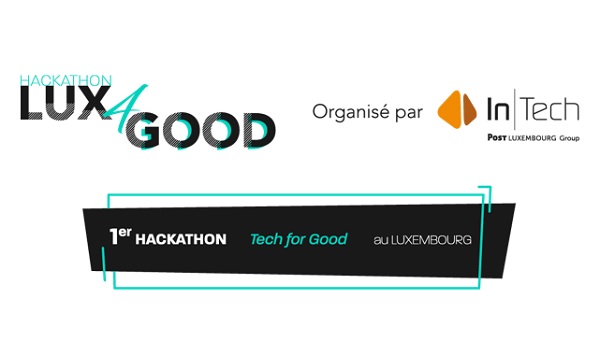
Organised by InTech, the "Lux4Good" hackathon was held in Luxembourg for the first time - at Technoport in Esch-Belval on 12 and 13 October - and attracted over 30 participants who worked on projects with a social, societal or environmental impact; the event was held in the presence of Her Royal Highness the Grand Duchess and Luxembourg's Minister of Labour, Employment and the Social and Solidarity Economy, Nicolas Schmit.
An IT hackathon brings together volunteer and avid IT developers, who work together for just a few hours and put forward an application or solution in order to solve a specific problem. Several hackathons have already taken place in Luxembourg. However, this was the first event that aimed to serve public interest. This first Lux4Good hackathon was organised by InTech, an IT consulting and expert company, a subsidiary of POST Luxembourg.
Fourteen projects were submitted by Luxembourgish organisations (institutions and start-up associations) in fields such as responsible finance, collaborative economy and diversity. The six teams participating each had to select one of these projects; they opted for those backed by APEMH, CSSF, Equilibre - My Pledge, Food4All, IMS and OpenVillage. The hackathon resulted in the development of a prototype web and mobile application to solve the issue at hand.
After 24 hours of fruitful exchanges, the jury, which included HRH the Grand Duchess, awarded three prizes:
• third prize, funded by the Union luxembourgeoise de l’économie sociale et solidaire (ULESS), for an application to teach teenagers about budget management (project backed by the CSSF);
• second prize, financed by BGL BNP Paribas and InTech, for an application to facilitate the assessment of diversity in organisations (project backed by IMS);
• first prize, funded by POST Luxembourg and EBRC, for an application enabling women and couples in precarious situations to better monitor their pregnancy and to receive advice (project backed by the APEMH).
The three award-winning projects are currently being assessed in order to get them up and running.
Minister Schmit praised this “beautiful synthesis” between new technologies and impact projects, which demonstrates that digital technology - far from being a new social divide - can and must be a factor for social inclusion and a driver for improving society. He also recommended projects that he would like to see integrated into the 6zero1 incubator for social entrepreneurs, recently established in Luxembourg.









